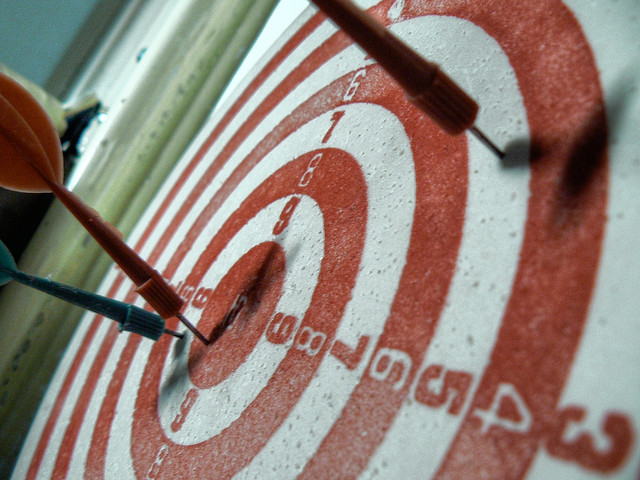On the complete spectrum of credit scores (350 for bottom-of-the-bucket scores, and 850 for unattainable perfection), it’s likely that your score leaves a few things to be desired.
For example, maybe you have an overdue payment from several years back still haunting your score, or an error that you’ve been attempting for months or even years to correct.
One of the most frustrating things about credit scores is that even one relatively minor negative item can bring down an otherwise squeaky-clean report. No matter how many positives there are in your report (low revolving balances, established credit history, years and years of on-time payments), that one mistake or negative item still sticks out like a sore thumb.
Even One Negative Item Can Drop Your Credit Score Substantially
It’s sad, but true. Most of the time, these blemishes will stick around on your credit report for years and years (late payments last for 7 years).
On the other side of the equation, improving your credit score is much harder than wrecking it. Building up good credit history takes years of dedication and perseverance. Fixing errors often involves writing multiple letters and enduring a long bureaucratic process.
So why is it so important to guard your credit from any negative items? Why is it necessary to maintain a squeaky-clean credit report?
Credit Is Ubiquitous in Our Society
Your credit score touches on so many aspects of your life. For example, a good credit score can help you:
- Get a home mortgage
- Secure a low interest rate on any type of loan
- Get a car loan
- Land a job
- Start your own business
- Take out a student loan
While a good credit score helps, a poor credit score can ruin your chances of getting these things. For example, a low score can keep you from getting a home loan at all. Many employers these days are running the credit reports of potential recruits, and a bad score can sink your chances of landing a job.
A Low Credit Score Can Get Expensive
One of the top perks of having a good credit score is that you qualify for lower interest rates on all kinds of loans. With a low credit score, you may qualify for a loan, but you will have to pay a higher interest rate. That means that over the life of a car loan or home mortgage, you’ll pay thousands of dollars more than if you’d been able to get a lower interest rate.
How Do I Raise My Credit Score?
You’re not helpless when it comes to improving your own credit score. In fact, you have many options, including:
- Paying down your debt
- If your credit report contains errors, write letters of dispute
- Get approved for more credit (having more credit available to you can improve your score, as long as you keep your balances low)
- Request free copies of your credit report (so you can spot any potential errors)
- Get bill management software (or a budgeting app) so you’re never late on a payment again
- Hire a credit repair company
The worst thing you can do is ignore your credit score completely. Take control of your financial future, and take the crucial steps necessary to building an impressive credit score!


Recent Comments